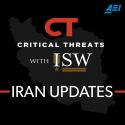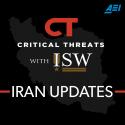Russian Offensive Campaign Assessment, July 16, 2023
Jul 16, 2023 - ISW Press
The Russian MoD has begun to remove commanders from some of the Russian military’s most combat effective units and formations and appears to be accelerating this effort. The recent dismissal of 58th Combined Arms Army Commander (CAA) Colonel General Ivan Popov and the reported dismissal of 106th Guards Airborne (VDV) Division Commander Major General Vladimir Seliverstov prompted further discussions of other alleged recent dismissals and arrests.[1] Russian sources amplified an alleged audio message from personnel of the 7th Guards Mountain VDV Division on July 15 in which the personnel claimed that the Russian military command dismissed 7th VDV Division Commander Major General Alexander Kornev in early July.[2] Russian sources also claimed that Russian authorities arrested 90th Tank Division (Eastern Military District) Commander Major General Ramil Ibatullin as well as two unspecified deputies on an unspecified date.[3] A prominent Kremlin-affiliated milblogger suggested that the Russian military command is also planning to dismiss the 31st VDV Brigade Commander, who is reportedly Colonel Sergei Karasev.[4] Russian sources speculated that the Russian MoD may be preparing to arrest VDV Commander Colonel General Mikhail Teplinsky.[5] ISW has not observed confirmation of Seliverstov’s and Kornev’s dismissals nor of Ibatullin’s arrest, although these claims follow a pattern similar to that of previous claims of command changes that have proven true.[6]










